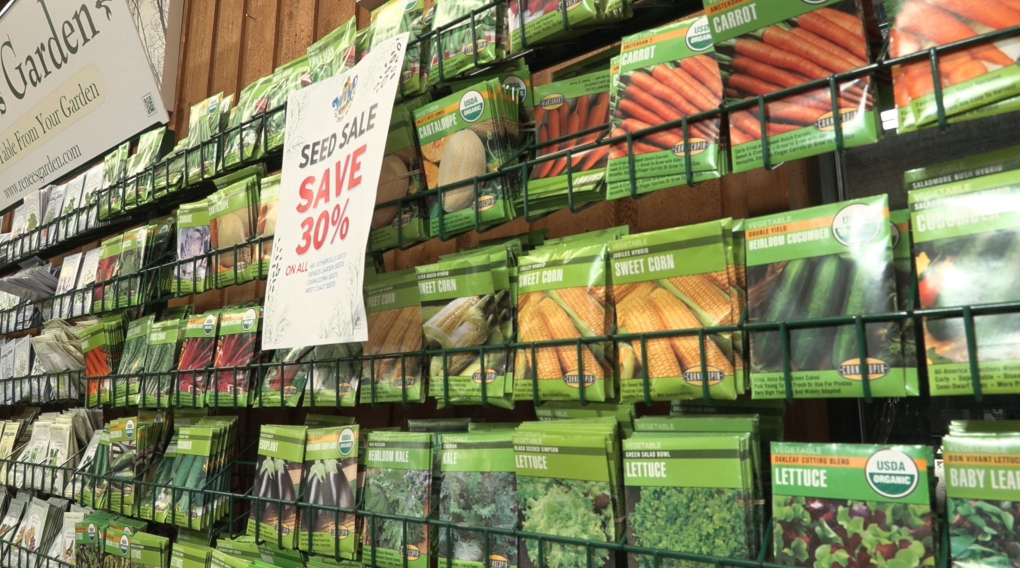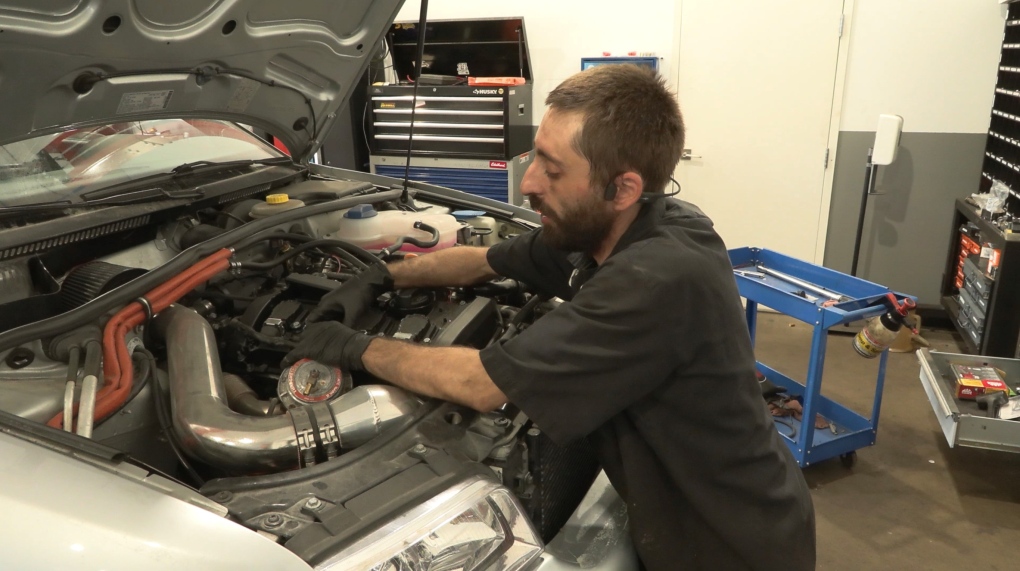'The rat population is increasing': Rodents a growing problem on southern Vancouver Island, says pest control expert
Rats are a growing concern on southern Vancouver Island, where their numbers are increasing and residents are reporting damage to their homes and vehicles.
"The rat population is increasing," said Christopher Day, the Vancouver Island branch manager for pest control company Orkin Canada.
When people were working from home during the pandemic, the majority of calls for service were for residential properties. "Now that people are going back to offices, we’re starting to get more commercial [calls]," said Day.
Rats have two main drives – food and shelter. With inflation driving up the cost of food, a lot of people are planting gardens and that is a veggie buffet for rats.
"A lot of people are getting into gardening," said Shawn Jackson, department head at the Wildwood Outdoor Living Centre. "[Rats] will go and pilfer tomatoes and the odd bit of fruit but what they really want in the backyard gardens is the compost."
As compost breaks down, it heats up. That is not only a food source but a nice place for rats to call home and reproduce.
 Seeds for sake at Wildwood Outdoor Living Centre in Saanich, B.C. (CTV News)
Seeds for sake at Wildwood Outdoor Living Centre in Saanich, B.C. (CTV News)
"We always encourage people to do compost but it is an intensive system that has to be maintained," said the department head.
Jackson recommends consistently turning over your compost or purchasing an enclosed system.
Kyle Beland is a mechanic at Ina Motors. He has seen the damage rats can cause to a vehicle's wiring system.
"You’ll wake up in the morning and your car doesn’t run all of a sudden. It’s shaking and misfiring,” said Beland. "It's because they’ve chewed all the wires that go to the ignition coil."
Those wires are wrapped in a soy-based insulation, a tasty treat for rats. Depending on the extent of the damage, a fix can be expensive.
 Kyle Beland, a mechanic at Ina Motors in Langford, B.C., shows the most common place where rodents will eat vehicle wiring. (CTV News)
Kyle Beland, a mechanic at Ina Motors in Langford, B.C., shows the most common place where rodents will eat vehicle wiring. (CTV News)
In July 2021, the province embarked on an 18-month trial, banning the use of second-generation anticoagulant rodenticides in many circumstances. The reason for the ban was that wildlife were dying after ingesting poisoned rodents.
That has prompted pest-control companies to adapt, often by using traps.
“It is more labour-intensive, so more labour means more time, more time means more money,” said Day.
The trial is set to expire in January.
With fall fast approaching, rodents will be looking for a warm place to live. Day says a mouse is able squeeze its body through a hole the size of a pea, while a rat can squeeze its body through an opening the size of a dime.
Day recommends rodent-proofing homes now in order to protect property from an increasing rat population.
CTVNews.ca Top Stories

Trump is open to using 'economic force' to acquire Canada; Trudeau responds
Prime Minister Justin Trudeau said 'there isn’t a snowball’s chance in hell that Canada would become part of the United States,' on the same day U.S. president-elect Donald Trump declared that he’s open to using 'economic force' to acquire Canada.
Los Angeles residents flee wildfire as fierce winds gain strength
Firefighters scrambled to corral a fast-moving wildfire in the Los Angeles hillsides dotted with celebrity homes as a potentially 'life-threatening, destructive' windstorm hit Southern California on Tuesday, fanning the blaze seen for miles while roads were clogged with cars as residents tried to flee.
Liberal leadership hopeful Frank Baylis noncommittal on eliminating consumer carbon tax
Liberal leadership hopeful Frank Baylis says eliminating the consumer carbon tax alone will not 'solve the affordability issue for Canadians.'
A B.C. mom's real-life nightmare and the search to find her trafficked daughter
A Vancouver island mom shares the story of what happened to her teenaged daughter – and the warning for other parents about sex trafficking.
Canadian naval vessel shadowed by Chinese war ship in the East China Sea
CTV National News is on board the HMCS Ottawa, embedded with Canadian Navy personnel and currently documenting their work in the East China Sea – a region where China is increasingly flexing its maritime muscle. This is the first of a series of dispatches from the ship.
Patient dies in waiting room at Winnipeg hospital
An investigation is underway after a patient waiting for care died in the waiting room at a Winnipeg hospital Tuesday morning.
Limit coffee-drinking to this time window to lower early death risk, study suggests
Drinking coffee has repeatedly been linked with better heart health and prolonged life. But the benefits of coffee consumption could depend on when you drink it, new research has found.
B.C. 'childbirth activist' charged with manslaughter after newborn's death
A British Columbia woman who was under investigation for offering unauthorized midwifery services is now charged with manslaughter following the death of a newborn baby early last year.
Man who exploded Tesla Cybertruck outside Trump hotel in Las Vegas used generative AI, police say
The highly decorated soldier who exploded a Tesla Cybertruck outside the Trump hotel in Las Vegas used generative AI including ChatGPT to help plan the attack, Las Vegas police said Tuesday.

































